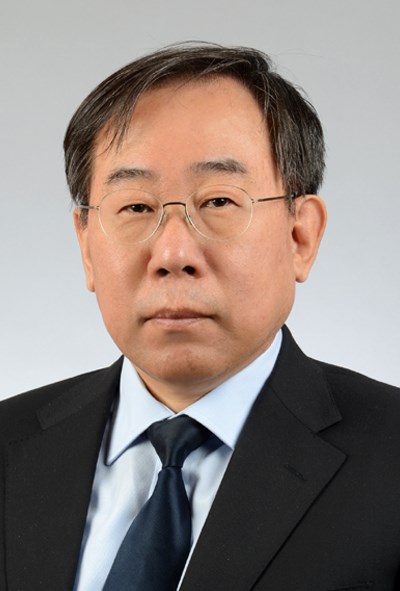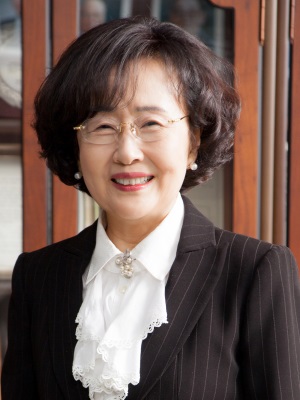EKC 2019

Jong Mun Park
President of Korean Scientists and Engineers Association in Austria
On behalf of the organizing committee members, I would like to welcome you to the Europe-Korea Conference on Science and Technology 2019 (EKC 2019), which will be held in Vienna, Austria from 15th to 19th July, 2019.
EKC 2019 is hosted by Korean Scientists and Engineers Association in Austria (KOSEAA) together with the Korean Federation of Science and Technology Societies (KOFST) and eight other Korean Scientists and Engineers Associations in Europe: Germany (VeKNI), the UK (KSEAUK), France (ASCoF), the Netherlands (KOSEANL), Switzerland (KSEAS), Finland (KOSES), Scandinavia (KSSEA), and Belgium (KOSEABe).
EKC is an annual conference where scientists, engineers, government officials, industry executives, and policy-makers from both Korea and Europe not only share their expertise and ideas but also build a strong foundation for networking and collaboration. EKC 2019 in Vienna will continue a tradition that started in Heidelberg (2008), followed by Reading (2009), Vienna (2010), Paris (2011), Berlin (2012), Brighton (2013), Vienna (2014), Strasbourg (2015), Berlin (2016), Stockholm (2017), and Glasgow (2018). EKC has become the most important scientific and social event between Korea and Europe. We, the organizing committee of EKC 2019, are delighted that the EKC 2019 will be held back in Vienna after EKC 2010 and EKC 2014.
The theme of EKC 2019 is “Science, Technology and Humanity: Advancement and Sustainability”. Human civilization is confronting huge anthropogenic problems such as environmental destruction, climate change, and social crisis. To tackle those issues, EKC 2019 will be a meeting place of science, technology, and humanity to acquire sustainability while they can continue advancing. Especially, humanities division is newly launched in EKC 2019 to discuss the role of social science in collaboration with science and technology.
The conference includes multilateral programs: i) science and technology discussions, ii) policy and business sessions, iii) industrial forums, and iv) networking programs. Participants from industry, government policy makers, as well as academic scholars and researchers will present and discuss related scientific issues. EKC 2019 especially promotes participation of young students to foster the next generation scientists.
Vienna, the capital of Austria, is one of the most attractive cities in the world and an economic and political centre in the heart of Europe, where there is a gate to the East and the West. Alongside the great support from the City of Vienna for our event, the final banquet will be held at Rathaus, the City hall, which is one of the most splendid monuments amongst numerous beautiful others in Vienna.
Finally, I would like to express my great appreciation to all sponsors, organisations and their members for great contributions. I also would like to express my sincere thanks to all committee members and volunteers who spent time and energy in preparing the conference. I believe our devoted effort will certainly be a legacy in international scientific cooperation and in supporting scientific communities in Korea and Europe.
We look forward to your participation in EKC 2019 and to seeing you in Vienna later this year!
Jong Mun Park, Ph.D.
Chair of the EKC 2019
President of Korean Scientists and Engineers Association in Austria

Myung Ja Kim
President of the Korea Federation of Science and Technology Societies
Good morning, distinguished guests, ladies and gentlemen.
It gives me great pleasure to welcome all scientists and engineers from home and abroad to the 2019 Europe-Korea Conference on Science and Technology (EKC-2019). This year's EKC is hosted by the Korean Scientists and Engineers Association in Austria (KOSEAA) and jointly organized by nine Korean Scientists and Engineers Associations in Europe. Allow me, at the outset, to extend my wholehearted thanks to President Jong Mun Park and the dedicated members of the KOSEAA for devoted time and effort invested in preparation of this auspicious Conference.
This year marks the 12th meeting of the EKC since its inception back in 2008 in Heidelberg, Germany. Since then, EKC has well established itself as the principal venue for networking among Korean scientists and engineers residing in Europe, contributing to S&T cooperation and mutual advancement between Korea and Europe. We are gathered here in Austria which established diplomatic ties with Korea in 1892 and have a history of longstanding friendly relations over period of more than 120 years. The two countries concluded the Bilateral Agreement for Scientific and Technological Cooperation in September 2007, followed by the signing of a memorandum of understanding (MOU) on Science and Technology Cooperation in the areas of S&T, ICT and e-government. I wish to take this opportunity to pay respect to scientists and engineers representing Korea and Austria who have been instrumental in advancing the frontiers of bilateral cooperation, both diplomacy and science wise. I trust that today's EKC will set another new milestone for the bilateral relations.
The theme of this year's EKC is 'Science, Technology and Humanity - Advancement and Sustainability'. As the world faces enormous environmental challenges, sustainable future has been the crux of the matter for human civilization over the past two decades. Beyond doubt, a paradigm shift is indispensable to galvanize concerted action towards sustainable development. The role of science and technology innovation (STI) in achieving the Sustainable Development Goals can be the prime mover for delivering the substantive change.
Among the '2018 Top 10 Science and Technology News' unveiled by Korean Federation of Science and Technology Societies (KOFST) last year, 'combat on fine dust' has topped the ranking followed by 'plastic waste crisis' in terms of people's interest. The KOFST believes that this result is a reflection of the public's high expectation for the role science and engineering community plays in addressing these challenges. Accordingly, we launched the 'Fine Dust National Forum' and the 'Plastic Issue Forum' as this year's flagship program, and held six consecutive meetings respectively as of today. In this regards, I attach great value to the fact that this year's KC(Korea Conference)s take a deep dive into the issues of sustainable development and environment as the common agenda.
Climate crisis along with environment pollution pose indisputable threats to sustainable future we face in the 21st century. The stark truth is that global warming has been projected since the beginning of the 19th century and aggravated over the past centuries. Global warming deteriorates natural disasters including drought, flooding, heat waves, cold spells, forest fire, cyclones, and causes other devastating problems on human and ecosystem. Korea is no exception as we are on the cusp of multiple risks including air stagnation, precipitation reduction and worst-ever levels of fine dust caused by multiple variables such as air pollution and climate change.
The Global Risks Report published annually by the World Economic Forum (WEF) serves as a wake-up call for humanity. In its 2019 Report, extreme weather events were the risk most likely to happen (remained at the top for the third year in a row). Failure of climate change mitigation and adaptation came in second place (moved up from fifth place in 2018). We are now hitting potential tipping point that causes climate change out of control, becoming more conscious that climate change is everyone's problem and our own problem.
Meanwhile, the plastic issue that became high on the global agenda is also impeding the planet's sustainability. Plastics have been the symbol of a phoenix of mandkind's recovery from the ruins of the World War II. However, a reckless use of plastics due to its convenient and inexpensive nature contributed to the throwaway society. From 1950 to 2015, 8.3 billion tons of plastic has been produced worldwide, while 6.3 billion tons ended up as waste. Only 9% of plastic waste is recycled. Today, microplastic (less than 5mm in diameter) pollution has emerged as a new threat to marine ecosystem and is now invading our food chain. Regulations are set to tighten up controls on plastic waste. The UN Environment Assembly, for instance, adopted the Ministerial Statement that calls for significant reduction of single-use plastics by 2030.
Distinguished Guests, Ladies and Gentlemen,
Apart from the perceived risk that sustainable development may not be feasible unless environmental problems are surmounted, we are also at the dawn of the Fourth Industrial Revolution that heralds the arrival of new era. The convergence of technological evolution across industries thanks to advances in AI, IoT, cloud, big data, robotics, drones and VR is blurring the physical, digital and biological boundaries, leading to an unprecedented Cyber-Physical System.
The evolution of certain core technologies and industries are unfolding at an astonishing pace. In parallel with it, the international community is entrusted with an important task to address the current risks by harnessing these new technologies. This is because we can carve out a future anchored on the 4th Industrial Revolution only when the present risks are alleviated. To this end, I believe that cross-border cooperation and support can be the key enabler for common prosperity of the human being in the 21st century.
At this stage, science and engineering community has an important role to play. The smart decision we make today will determine our tomorrow. As such, this platform convened by Korea-Europe scientists and engineers is worthwhile to define the role of science and technology innovation in achieving sustainable development, which would eventually enhance our capacity to address sustainability issues through cooperation and shared visions among countries.
With that, I sincerely hope that EKC will serve as an incubator for Korea and Europe to lay a basis for joint research and make headway in science and technology advancements. I am confident that Korean scientists and engineers residing in Europe will be at the forefront of the non-governmental diplomacy. Rest assured, the KOFST will always remain committed to your noble work. I wish you the best of luck for all your future endeavors. Thank you.
Myung Ja Kim
President of the Korea Federation of Science and Technology Societies
